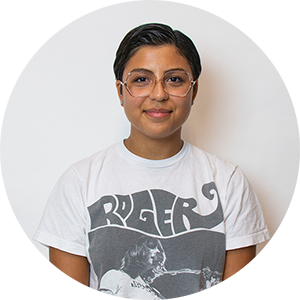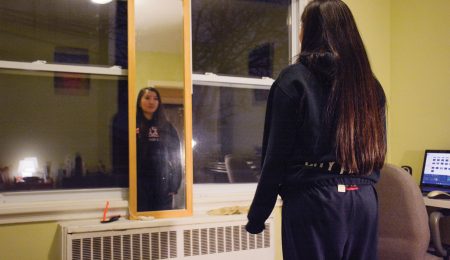8 candidates share their perspectives
The University of Ottawa’s Students’ Union (UOSU) general elections have begun, and the Fulcrum reached out to the many candidates for the Faculty of Social Science (FSS) seats on the Board of Directors (BOD) to help give students a better idea of who they will be voting for. The Fulcrum sent forward a set of questions, and each candidate responded to via email. Here is the full Q&A.
The Fulcrum (F): Can you introduce yourself in 2-3 sentence?
Matthew Edginton (ME): Hello, my name is Matthew Edginton, I am a queer, half Chinese, fourth-year student in political science. I am passionate about student govenment because I believe that the Student Union has an important role to play in providing numerous beneficial serives to students. As a member of numerous clubs and student groups, I am also a strong advocate for more vibrant student life on campus, which I know we can always work towards improving.
Danté Fosterdelmundo (DF): Hello, I am Danté Fosterdelmundo and I am a first-year political science and public administration student. I am originally from London, Ontario, and I am passionate about UOSU’s mandate and overall vision for all students. By becoming a member of the board, I hope to play an active role in making our student union an effective and active voice for our advocacy.
Armaan Singh (AS): My name is Armaan Singh (he/him) and I am a BSocSc student entering my fifth year at the University of Ottawa. I am running to be a member of the board of directors in order to ensure that our union continues to be one that is progressive, accountable, and one which fights in the student interest.
Miroslav Onufrak (MO): My name is Miroslav Onufrak, but I usually go by Mirko. I am a French Immersion political science student at uOttawa. My family is Slovak, and my favourite past time is exploring and learning new things!
James Adair (JA): My names is James Adair, I grew up in Owen Sound, Ontario, and I’ve always been passionate about activism and environmentalism.
Brandon Ly (BL): Hi, I’m Brandon Ly, a second-year public administration and political science student here at the University of Ottawa, and I’m running for the UOSU Board of Directors for FSS. I was born just across the river in Gatineau and have lived back and forth between Ottawa and Gatineau for a good chunk of my life, and as such, I am completely fluent in English and French and can speak decent Cantonese.
F: Do you have previous involvement in student life on campus or relevant experience that would help you in this role?
ME: I served as a member of the executive for the International, Political and Policy Studies Student Assocation (IPPSSA) for two years, where I represented students in various years to the executive committee, as well as ran IPPSSA’s Internship Program, where we placed students in internships on Parliament Hill. I have also been an active member and executive of the University of Ottawa Young Liberals, where I help to advocate for progressive change on campus and across the country.
DF: On campus, I am proud to be a part of a breadth of super cool things including the Gee-Gees Fencing Team, uOttawa Quizbowl team, English Debating Society, and Model United Nations. Not only have all these experiences given me valuable experience in working collaboratively, but I have made many friends and learned about the variety of experiences and perspectives of students here on campus.
AS: I have had extensive experience in student government, giving me the knowledge and leadership experience required to continue to be a strong passionate leader with a tested work ethic. I am currently the president of the students’ union and have held the mandates of advocacy commissioner of the students’ union and the vice president of equity and activism of IPPSSA.
MO: I have previous experience in student life. I participate in activities in all kinds of clubs. I am a current executive for the English Debating Society, where I serve as treasurer. As part of my club executive, I organize events or trips for students. In my role specifically, I am responsible for funding socials and trips for the club. This role has allowed me to work with great people and improve the ways we run trips so that everyone can have fun.
JA: As VP of activism for the UONDP, it has been my job for the past year to form relationships with organizing groups on campus and beyond and plan numerous events and actions mobilizing our club for various issues.
BL: Although I have not been physically present in student life for long, as I was online last year, I was a member of the uOttawa eSports team of Game Heads in charge of the osu! wing, of which I was the inaugural lead. I also have a large amount of experience in management and working with others, from political campaigns to small pet projects like eSports tournaments. I believe that my having these skills and experiences will only benefit the electorate should I be elected.
F: What do you believe to be the mandate of a faculty of social sciences student on the board of directors?
ME: I believe that the mandate is twofold: one, to represent the specific needs and interests of students in the Faculty of Social Science to the student union, and two, to provide oversight of the student union as a whole, working with directors from all faculties to ensure that the union is well run, funds are well managed, and the services that students rely on are properly administered.
DF: The board of directors is charged with the critical responsibility of overseeing our student union and importantly ensuring their processes remain equitable and transparent. More specifically, a social science [director] must weigh and advocate for the interests of the faculty on the board. It is important to acknowledge that there are over 10,000 students in FSS and it is one of the most diverse and expansive faculties [at] uOttawa. Although I will find it impossible to speak for every student on the board, I believe I have the passion for our faculty and a willingness to seek out a multitude of perspectives, meaning that I can be a solid liaison for FSS on their student union.
AS: The mandate of an FSS board member is to represent the interests of social sciences students while ensuring that the union continues to advance the student interest and to serve as the oversight body of the union’s executive and operations. It is to also ensure that the union is able to fulfill its mandate by playing a pivotal role in liaising between the bureaucracy and the membership of the union.
MO: I believe the mandate of a student representing the Faculty of Social Sciences on the Board of Directors is to give a voice to students. Following the idea of representative democracy, students get the chance to elect students to represent them on the Board of Directors. This election, there are many great ideas proposed and that will be implemented over the next school year. The role of a director is to hold the university administration and union to account to implement these services well to help students.
JA: Besides the obvious mandate of overseeing the functions of the union and the executive, and representing the issues FSS students care about, our mandate should be to work collaboratively to construct a more solid foundation for the union and push for progressive change.
BL: I believe that the mandate of FSS students on the Board of Directors is the same as any other Director from any other faculty would be: to represent the students of your faculty, regardless of if they cast their vote for you or not. We should be working towards ensuring that the wants and needs of all students are met, especially within our own faculties. The notion that each faculty’s director(s) should have a different mandate does not sit well with me.
F: What do you think often gets overlooked for your faculty?
ME: In the faculty of social science, I believe there is often a clear distinction between those who move in student government circles, and those who do not. I think it is important to try and include the students whose voices are not traditionally heard in the student union.
DF: One issue in particular that is not exclusively overlooked by FSS, however still a prominent oversight, is the lack of accessibility standards adopted by recognized student governments and enforced by UOSU. Recently, I attended an event hosted by the Psychology Students’ Association wherein three speakers discussed their lived experiences as a disabled person on campus. One notable barrier that was highlighted is that RSGs and UOSU have not adopted standards to ensure accessibility for events often limiting disabled students’ experience on campus and engagement with their faculty community as a whole.
AS: One aspect that I would like to continue to focus on is how the union ought to be a vector in mobilizing the immense social capital that it possesses in order to make change for the better. Furthermore, I want to ensure that the union continues to embolden student activists and adopt more radical and bold positions.
MO: What is overlooked is the kind of pressure students are under, especially in the first year of adjusting to a new learning environment. University prepares us for a career, but it is stressful as we discover, build, or change our interests along the way. I have felt this and determined it is normal to change your program and interests over time. I know many people who have experienced this pressure as well, and who acknowledge that they have a tough time talking about it. Especially with many students coming after many months of virtual learning due to a once-in-a-lifetime pandemic, there are many experiences that are important to acknowledge.
JA: I think gender and racial disparities in participation often get overlooked. We currently have no women running for FSS BoD, and this is a serious issue that needs to be addressed.
BL: I think the fact that we aren’t just PoliSci students, or that it’s not just politics-related in our faculty, is often overlooked. We have students from all walks of life, from the school of social work all the way to economics; we have much more to us than just politics, contrary to many others’ beliefs.
F: How do you plan on engaging and maintaining transparency with students? How will you ensure strong communication between students, the BOD and the Executive Committee?
ME: I think the easiest and most important way to ensure engagement and transparency with students is giving them the information they need to be well-informed and then giving them forums where they can share their thoughts, opinions and questions with their representatives. This can be accomplished by providing regular updates on the work of the BoD, as well as holding town halls where all students in FSS can have that forum to have their voices heard.
DF: Transparency and engagement with students and UOSU starts with addressing the systemic flaw that risks stagnation and diminishing of the union: voter turnout and apathy. There is little line of communication to be opened when voter turnout hovers around 7-12%, which is among the lowest in the province for student unions. Students need to be invested and therefore involved with the union which will naturally increase accountability, transparency, and overall effectiveness. Finding means for students to vote in their union should be a top priority for UOSU, especially given the fact that UOSU is only five years old. Moreover, given the fact that there is a limited amount of General Assemblies, students often feel limited in their ability to share their opinions with UOSU. The Board of Directors as a whole should be more willing to genuinely seek and include student opinions directly in their decision-making.
AS: I think maintaining transparency and accountability is primordial. When presented with the opportunity I will always vote to have recorded decisions on motions so that our membership is able to see how their individual student leaders have voted and affected the outcome of different decisions. I will also ensure that I am present at all engagements, including all board meetings, committee meetings that I am a member of, and the general assemblies. I will also use tools, like social media, to supplement the work that the UOSU is already doing in order to communicate important and relevant information to the membership. Holding town halls will also be important with my fellow FSS colleagues, if elected.
MO: As a Director, I will post regularly about what the Board of Directors and UOSU is doing and be open to student input at any time. A common thing that has been done is office hours by the Director and that is something that I am interested in continuing.
JA: I intend to be personally accessible to comments and concerns and actively reach out to campus groups and see what issues they care about. The union and exec need to seriously look at their communication strategy and perhaps completely overhaul it because it’s not working clearly.
BL: I personally intend to host Q&As over social media after every BoD meeting. This way, we can ensure that all questions the students have are answered with the highest degree of transparency. My personal social media message apps (Instagram, Messenger, Discord, etc.) will also always be open … for students, clubs, etc. if they wish to set up a meeting or have a discussion. I do not intend to hide anything that isn’t sensitive information, nor will I ever intentionally do so.
F: What is one area of the body you are running for, that can improve and how do you plan on helping to improve it?
ME: I think that the way that student fees and managed and spent is incredibly untransparent, and by opening up the student union’s finances to better oversight, we can ensure that we get the most benefit for the money students put into the organization.
DF: One area of the student body that could be improved is first-year participation. Relating to my personal experiences as well as talking with club and RSG executives, first-year participation in student life has been rather elusive. Clubs, events, and activities are some of the most valuable experiences one can attain alongside their education as a student at uOttawa. It is no secret that the first-year transition can be tough, especially in finding new friends and social groups. As well, the senior students who run these functions rely on first-years to hopefully pass their torch onto someone who can carry their leadership and passion for their organization. I plan to improve this aspect by developing events for first-years that will showcase not only the number of clubs on campus but their value as well.
AS: One area that can improve in the students’ union is to ensure a collegial, respectful, and cooperative work environment where directors and executives can express themselves freely but in a way that respects the dignity of all. I will commit myself to focussing on student issues rather than playing petty politics and distinguish attempts of making spectacle or mockery of others. It’s important that as student leaders we all work hard to ensure a welcoming environment.
MO: I am running to represent the Faculty of Social Sciences on the Board of Directors for the University of Ottawa Students’ Union (UOSU). I would like to represent students and lead following the experiences experienced during my studies. We have an opportunity to improve campus for current and future students. If elected, I will work with fellow students and constituents, the university, and the union on ways to improve uOttawa for all students.
JA: I want to push the union to form deeper connections with our sister organizations like APTPUO and GSAED. We share concerns and working together and deepening our bonds can only be beneficial
BL: We need to increase transparency between the clubs and the Union. For a long time now, clubs have had several complaints regarding the Union, whether it be a lack of communication or major issues regarding funding allocation. That we need to make sure that we are as transparent with the clubs, and we need to ensure that the channels for communication are open at all times to ensure that there is no confusion.
F: Why are you qualified for this position and why should students vote for you?
ME: I believe that my combination of significant relevant experience in student government, and a commitment to greater student engagement with the student union can be a part of the important changes which need to happen in the student union to ensure it delivers more for students.
DF: Students should vote for me because I believe that UOSU can be an invaluable and powerful union if it prioritizes long-term growth and stability. Making not only a filled, functioning executive and board but also one that has strong student backing should be the top priority of UOSU to ensure the survival of the union. We deserve a dynamic union that has passionate members on the board who will push for students’ interests and I believe with my vision I can work with the board and executives to fulfill this goal.
AS: Students should cast their ballot for me if they want a union which will continue to advocate and fight for their interest, one that will be unapologetically inspired by leftist principles, espouse democratic and good governance practices, work in solidarity and cooperation with different advocacy groups and labour unions, look at issues in an intersectional lens, and one that will work tirelessly to ensure accountability, integrity, and principled leadership.
MO: I am currently serving as treasurer for the English Debating Society. In this position, I manage and track our club finances, and present budgets. As the first in-person year after being virtual, we were able to successfully send students to in-person tournaments to many places such as Montréal, Toronto, and New Haven. On a personal level, I understand what it is like to be a student that is still learning what kind of career they would like to work. I changed my program of study from engineering to political science after my first year. I know what it is like to be a new student adjusting to university and a returning student studying in-person after being online for many months. These are the reasons why I advocate for more resources for students and why I am running.
JA: Beyond my experience on campus I’ve been an active organizer and activist since high school, I know how to get different groups to work collaboratively. Beyond that, I know that being on the BoD is a privilege and a responsibility, and it requires serious commitment and dedication, something I’m willing to give.
BL: My focus is not on anything other than making sure that the students are represented fairly, equally, and directly. We need to ensure that the Union is always accountable for what the students want, and the only way we can do that is by showing that we’re working for them. We can’t dilly-dally any longer on these issues. If we show that the Union is working for the students, we can increase participation in UOSU elections. I put my name forward because I want to be that voice, and that’s the only reason. Whether you’re still undecided or have already made up your mind about your top choices, I hope I can count on your vote. Let’s make sure that UOSU is a union that works for YOU!
The eighth candidate, Max Christie, chose not to respond to the Fulcrum’s questions, instead stating only, “My philosophy is simple — I think we should elect candidates who are just as much of a joke as UOSU is :).”
The UOSU general election voting period begun on Mar. 5, and ends on Thursday, Mar. 9.









